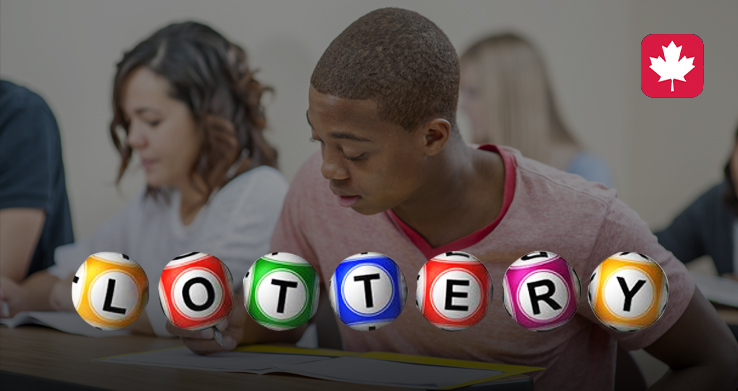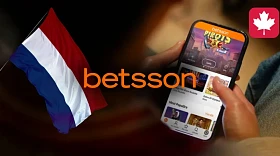Supporting Public Education through New York's Gambling Revenue
Beyond merely offering a chance for individuals to strike it rich, New York's lottery system plays a crucial role in bolstering the state's public education funding. Brian O’Dwyer, Chair of the New York Racing and Gaming Commission, is spearheading a campaign aimed at raising awareness regarding the significant contributions of gambling revenue to education in the state.
According to Empire State, proceeds from the lottery are allocated to local districts using a statutory formula similar to other forms of state aid for education. This formula accounts for both the size and financial performance of each school district, ensuring that larger districts with lower incomes receive a larger proportion of lottery-funded education support.
Raising Awareness
O’Dwyer highlighted the results of a recent survey indicating that many New Yorkers are unaware of the lottery's role in supporting public schools. He emphasized the importance of responsible participation in the lottery while underscoring that every dollar spent contributes to the betterment of the state's children.
Meanwhile, education official Robert Lowry noted that while lottery aid constitutes only a modest portion (5-10%) of total education funding, it remains crucial for various essential expenses such as teacher salaries, utilities, and transportation. Lowry, serving as the Deputy Director for the Council of New York School Superintendents, emphasized that this funding follows a legally mandated payment schedule.
O’Dwyer reported that gaming revenue has provided over US$55 million for New York schools in the current year alone. He emphasized that responsible gambling is an enjoyable activity deeply ingrained in local tradition, with the state successfully transitioning it away from organized crime and back into the hands of New Yorkers.
Moreover, the lottery's benefits extend beyond education funding, as it also supports small businesses selling lottery tickets, with stores receiving a 6% commission on each sale, amounting to US$8.9 million in 2024. The commission also highlights the availability of 24/7 support for problem gambling through the New York State OASAS HOPEline at 1-877-846-7369 or via text at 467369.
Addressing Problem Gambling Concerns
Concerns surrounding problem gambling have escalated, prompting lawmakers to take preventive measures. U.S. Representative Paul Tonko introduced the "Betting on Our Future Act" in Congress, seeking to prohibit predatory online sports wagering advertisements across all media platforms, akin to previous bans on tobacco promotions.
However, as online sports betting continues to gain popularity in the Empire State, experts and policymakers remain vigilant about the associated risks of problem gambling. With tax revenue from online bets reaching approximately US$862 million in its second year of operation, surpassing the previous year's proceeds of nearly US$700 million, the need for responsible gambling practices and regulatory measures remains paramount.
Our Conclusion
In conclusion, while we recognize and appreciate the vital role that gambling revenue plays in supporting education development in New York, it remains a perplexing reality. Relying on gambling proceeds to fund essential educational needs raises ethical and societal questions about the sustainability and equity of such funding mechanisms. While it may provide much-needed resources, it also underscores broader issues surrounding funding priorities and the potential normalization of gambling as a means of public service provision. Moving forward, it's imperative for policymakers to explore diverse and sustainable funding sources to ensure the long-term prosperity and integrity of our education system, while also addressing the underlying societal concerns associated with relying on gambling revenue.



ravenmilkers If Black Cube is really just an operator, then who spent money on such a large-scale operation? It doesn't cost 5 kopecks.



BatBulo4ka 5 thousand a day - well, this is no longer a player, but some kind of investor. It is quite reasonable to limit it.



CertifiedNiggur And then they wonder why the players are paranoid... Even dealers can no longer be trusted.


ImBrainless Damn, how sick these casinos are with their blocks! I had a situation in the pin-up, just when a big win was shining - 8k. And what do you think? They blocked the under the pretext of "suspicious activity". Two months of correspondence, and only after threatening to write to the regulator, the money was returned. Now I check 100 times where I go. Thank you for the article, a relevant topic!












































The fact that gambling revenue is funding education raises important questions about equity and access. Are we inadvertently perpetuating inequalities by relying on a funding source that may disproportionately affect certain communities?
While I understand the practicality of using gambling revenue for education, it still feels like a Band-Aid solution to a larger problem. We need to address the systemic issues in our education funding system to ensure long-term stability.
It's great to see initiatives promoting responsible gambling while highlighting its positive impact on education. However, we should also address the root causes of why education funding is so reliant on gambling in the first place.
I appreciate the efforts to raise awareness about how gambling supports education, but shouldn't we be investing in our schools through more ethical means? Relying on gambling revenue feels like a gamble itself.
While it's commendable that gambling revenue contributes to education, it's concerning that our schools rely on such a volatile source of funding. We need more stable, sustainable solutions for financing education.